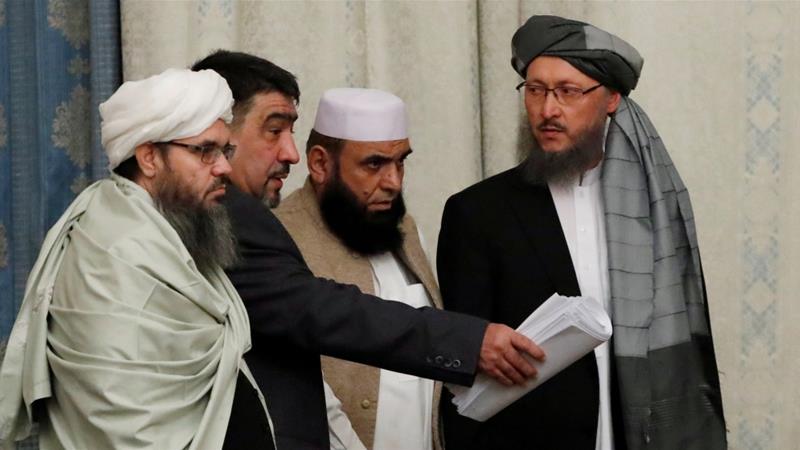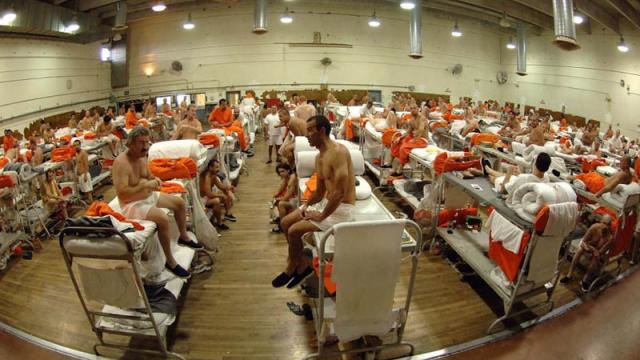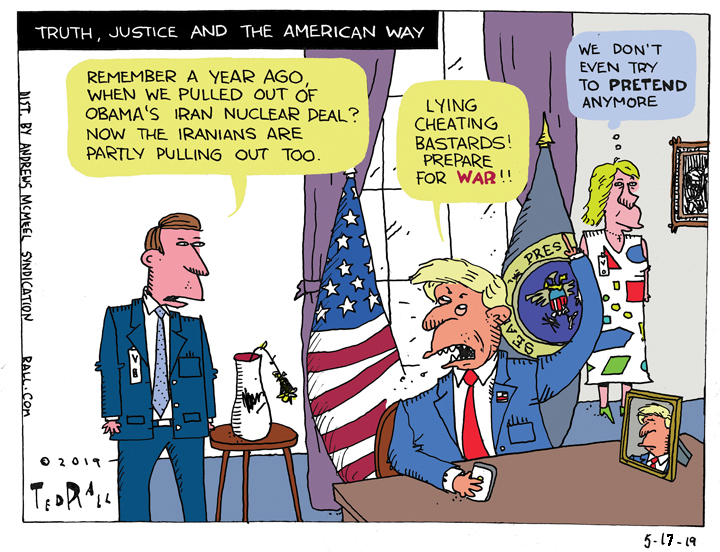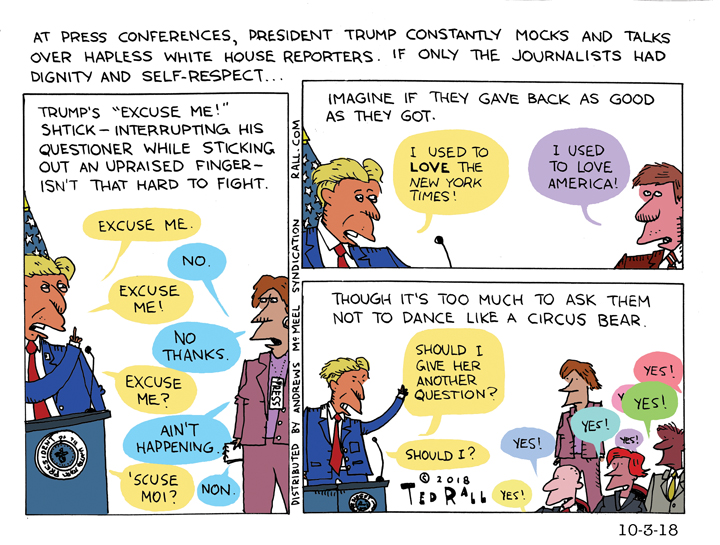America’s brazen hypocrisy reached stunning new heights when the Trump Administration began threatening Iran with new sanctions and military action because it is scaling back its adherence to the Iran Nuclear Deal…the deal that Trump pulled the U.S. out of a year ago.
Trump’s Foreign Policy: Hated by Pundits But Popular with Voters

President Trump keeps coming under attack for his foreign policy, predictably by Democrats but also by legacy Republican leaders.
“I’m very concerned,” Senator James Inhofe (R-OK), chairman of the Senate Armed Services Committee, said about Trump’s plans to bring troops home from the Middle East.
“It makes it abundantly clear that we are headed towards a series of grave policy errors which will endanger our nation, damage our alliances and empower our adversaries,” said Marco Rubio.
Trump’s late-2018 announcement that he planned to withdraw 2000 US troops from the meatgrinder of Syria’s brutal civil war prompted bipartisan dismay. Next the new Doha peace framework to end US involvement in Afghanistan had establishment politicos and pundits reviving their hoary, false canard that America’s “abandonment” of Afghanistan after the Soviets withdrew in 1989 led to 9/11. Now he’s getting attacked for trying to reach a nuclear disarmament deal with North Korea (possible bonus: a formal end to the Korean War).
Deescalation? Why, that could cause peace! What could be a more dangerous threat to American interests?
Meanwhile, Trump is still in Syria. He’s expanded Obama’s drone assassinations. He wants to spend even more on defense. The pro-war wise men of the media have zero problem with hawkishness, no matter how stupid or immoral.
Conventional wisdom holds that this criticism will cost Trump. I disagree. While the president’s America First foreign policy has no constituency within the leadership caste of either party, it has one he cares about more: the voters.
Interestingly, a high percentage of Americans (65%) disapprove of Trump’s handling of international affairs generically. No doubt they’ve been influenced by “Trump is a child on foreign stuff” coverage.
Yet when it comes to specifics, Americans mostly approve of his moves to deescalate tensions overseas and reduce foreign entanglements.
77% of Americans approved of the first summit between Trump and Kim. 54% thought it went well. That’s significantly more than the portion of Americans who approved of his presidency in general, indicating that on this issue he enjoyed support from many Democrats.
Support for withdrawing troops from Syria is close to 50-50, not stellar yet significantly better than his overall mid-40s approval rating.
Afghanistan is a no-brainer for the president. Most Americans want immediate withdrawal and a whopping 70% say that we never should have invaded in the first place.
Trump’s disentanglement policies are popular. The reason that his overall numbers on international matters run low has more to do with the tone and image he projects than the policies he has promulgated. People like what he’s doing but not how he looks and sounds as he does it.
Trump got elected in large part by ignoring GOP dogma and selling his ideas directly to the American people. Voters were tired of an immigration crisis created and prolonged by both parties and they were angry about deindustrialization and vicious “free trade.” Trump’s proposed solutions—the Wall and a trade war—might not be intelligent or effective. But he addressed both issues when others, especially Hillary Clinton, would not. Voters prefer a president who does something stupid to fix a problem to one who pretends it doesn’t exist.
With foreign policy, Trump is trying to pull off a similar trick as he did with domestic issues in 2016: addressing the “endless war” problem that spun out of control under Bush. If not for Trump neither major party would have touched a Pentagon with so many bases abroad it can’t give you an exact number. The question for 2020 is whether voters — who traditionally decide how to vote based on the state of the economy — will give Trump credit for nibbling at the edges of America’s militaristic bloat.
(Ted Rall (Twitter: @tedrall), the political cartoonist, columnist and graphic novelist, is the author of “Francis: The People’s Pope.” You can support Ted’s hard-hitting political cartoons and columns and see his work first by sponsoring his work on Patreon.)
Why We Lost the Afghan War (Again)

December 11, 2001: Three months after 9/11, two months after George W. Bush ordered bombs to begin raining on Kabul, the day The Village Voice published one of my war reports from the front in Afghanistan.
“We’ve lost this war,” I wrote. To drive my point home, the headline was: “How We Lost Afghanistan.”
I continued: “So how much will it cost?”
Seventeen years later, the end of America’s longest war—since history suggests Afghans will keep killing each other long after our departure, it would be more precise to say the end of America’s involvement in Afghanistan—appears to be drawing near. Peace talks between the Trump Administration and the Taliban in Qatar have culminated with an “agreement on principle” whose main U.S. demand is easy for the Taliban to grant. Afghanistan, the Taliban must assure the U.S. and the Afghan puppet regime in Kabul, cannot again become a “platform for international terrorist groups or individuals.” Even according to estimates by the Obama-era CIA, Al Qaeda’s presence in Afghanistan was more of a coincidence than a fearsome terrorist organization: “about 50 to 100 Qaeda operatives.”
They could have fit on one bus. For this we fought a war?
Now we know the pricetag of the invasion and long occupation: 2,400-ish U.S. troops killed, 4,000-ish U.S. “civilian contractors” killed, 59,000-ish Afghan soldiers and police killed, 38,000-ish Afghan civilians killed, 42,000 “enemy” Afghan soldiers killed, 50-ish journalists killed, 400-ish NGO workers killed, 20,000-ish U.S. troops wounded. No one counts the other non-fatal casualties. Obviously the non-U.S. death counts are way lowball.
U.S. taxpayers spent $5 trillion—enough to wipe out all outstanding student loans three times over—on bombing and pillaging and torturing Afghans. Wind-down costs, interest on the national debt, etc. will cost more still. Caring for wounded veterans adds another $8 trillion going forward. For that total of $13 trillion you could pay off every debt owed by every American citizen: home mortgages, car loans, credit cards, student loans, everything.
No one estimates the total cost of the buildings and other Afghan infrastructure destroyed by the war.
Of course no one can begin to calculate America’s loss of moral standing in the world. You don’t get to invade the world’s poorest nation, kidnap the locals and torture them in gruesome concentration and death camps, coddle local perverts and child rapists and come out looking half-decent.
Special Forces captain Dan Quinn beat a U.S.-backed Northern Alliance commander he found sexually abusing an Afghan boy chained to his bed on a U.S. military base. “The reason we were here is because we heard the terrible things the Taliban were doing to people, how they were taking away human rights,” Quinn said. “But we were putting people into power [the Northern Alliance] who would do things that were worse than the Taliban did—that was something village elders voiced to me.” Quinn was drummed out of the military.
As I mentioned at the top of this essay, the war was lost before it really began, in 2001.
Anyone who paid attention knew losing was inevitable.
Not many Americans paid attention. 89% of American voters polled in December 2001 approved of the invasion of Afghanistan. Now, 70% disapprove.
So why did we lose?
It’s too facile to say: graveyard of empires. Afghans really did welcome us as liberators in 2001. We had a better shot at success than the Brits and the Russians.
The short answer is: we did both too little and too much.
Too much cash spent, too little reconstruction.
“It would take billions of dollars to even begin rebuilding this country,” an American officer told me for my 2001 Voice piece. “Billions of dollars and many, many years. We don’t have that kind of attention span. Bombing Iraq will be a lot sexier than teaching Afghans how to read.” Afghanistan didn’t have phones, electricity, paved roads, bridges or public records. Streets didn’t have names, houses had no numbers—which was fine since there was no mail. There was no central bank or monetary system. People didn’t know their own last names.
Billions were spent, some of it on rebuilding public infrastructure. “A year ago it took about two days to drive between Kabul and the southern city of Kandahar. Today it takes about five hours on a smoothly tarmacked road paid for by millions of US taxpayers’ dollars,” the BBC reported in 2004.
Problem was, reconstruction money didn’t go to ordinary Afghans or even their towns. The U.S. installed a puppet president, Hamid Karzai, whose corrupt family looted millions, possibly billions, of dollars in cash. The drug trade, suppressed by the Taliban government before the U.S. invasion, exploded. “Private money, a substantial portion of it thought to be from the illegal drugs trade, is also funding a spurt of new building in the cities, but many say they have seen little change, especially in rural areas where most Afghans live, where villages without even basics like running water, power or schools remain the norm,” reported the BBC. By 2010 half of Afghans told pollsters they hadn’t seen any reconstruction whatsoever paid for by foreign aid. It’s just as bad now.
If an Afghan wanted to fix his house after it was damaged by a U.S. drone attack, that was on him.
Too little self-determination.
“The Afghan people have lost faith in the democratic political process, and regardless of the Taliban’s intimidation they have already boycotted the ongoing voter registration throughout the country,” Asia Times reported in 2018. What “democratic” process? Fraud was widespread in presidential and parliamentary elections. “Everyone was cheating in my polling station. Only 10% voted, but they registered 100% turnout. One man brought five books of ballots, each containing 100 votes, and stuffed them in the boxes after the elections were over,” an Afghan voting official said in 2009.
The message that elections can be fixed came straight from the self-declared crusaders of electoral democracy. In November 2001 while the initial invasion was still underway the U.S. staged a farcical political conference in Bonn, Germany where the Bush Administration attempted to foist the exiled king Zahir Shah, an 87-year-old exiled in Italy since the early 1970s, on the Afghans as a weak English-style constitutional monarch. Ironically, the Afghans present liked the idea—then the Americans pushed him out of the way to make room for Karzai.
The message was clear: American-style democracy is BS.
P.S. Afghanistan, it turns out, has vast mineral wealth worth more than $1 trillion. China has locked up the rights to exploit those reserves.
(Ted Rall (Twitter: @tedrall), the political cartoonist, columnist and graphic novelist, is the author of “Francis: The People’s Pope.” You can support Ted’s hard-hitting political cartoons and columns and see his work first by sponsoring his work on Patreon.)
SYNDICATED COLUMN: Trump is Crazy. Invoke the 25th.
 Never mind the policies. For the purpose of this discussion—a discussion our country desperately needs to have—politics are an annoying, distracting rabbit hole.
Never mind the policies. For the purpose of this discussion—a discussion our country desperately needs to have—politics are an annoying, distracting rabbit hole.
Donald Trump should be removed from office under the 25th Amendment.
The reason Trump should be de-presidented has nothing to do with his legislative actions or foreign policy initiatives. Unlike George W. Bush in 2000 (and arguably in 2004), Trump won fairly. Unlike Barack Obama, he has kept his promises. His presidency is legitimate.
It has nothing to with his alleged ethical and legal breaches. Impeachment is the proper instrument for charging and possibly removing a sitting president.
The 25th Amendment was ratified in 1965 following the Kennedy assassination. It provides a mechanism for replacing a president who has become incapacitated physically—or, as seems to be the case for Trump, mentally.
“Section 4 stipulates that when the vice president and a majority of a body of Congress declare in writing to the president pro tempore of the Senate and the Speaker of the House that the president is unable to perform the duties of the office, the vice president immediately becomes acting president,” according to the History channel. Currently then, Mike Pence and a majority (currently Republican) either of the House or the Senate would write to Senator Orrin Hatch of Utah and Rep. Paul Ryan of Wisconsin.
Nancy Pelosi of California will probably replace Ryan after the new Congress is sworn in January.
The VP and a majority of Trump’s 24 cabinet members could begin the process instead of Congress. “It would only take 14 people to depose the president” in that scenario, according to Business Insider.
Trump could appeal. “The president can then submit a written declaration to the contrary and resume presidential powers and duties—unless the vice president and a majority body of Congress [i.e. both houses] declare in writing within four days that the president cannot perform his duties, in which case Congress will vote on the issue.”
High-ranking officials inside the Trump Administration have been so concerned about the president’s fitness to serve that they thought about invoking the 25th Amendment just two weeks after Trump’s inauguration. After the president fired FBI director James Comey, deputy attorney general Rod Rosenstein went to Comey’s then-acting replacement Andy McCabe, whom he told he thought “that he might be able to persuade Attorney General Jeff Sessions and John F. Kelly, then the secretary of homeland security and now the White House chief of staff, to mount an effort to invoke the 25th Amendment,” according to The New York Times.” Rosenstein floated the idea of wearing a wire to catch audio of Trump talking crazy.
An anonymous Times op-ed by a Trump official claimed that several cabinet members had considered invoking the 25th Amendment.
Trump has called himself “a very stable genius.” Genius? This is a native-born American who attended college, who said his mom “gestated” her Thanksgiving turkey. But stable?
Trump’s manic blizzard of strangeness on Thanksgiving 2018 made the case for the 25th Amendment better than anything I’ve read in an inside-Trump tell-all book.
Asked what he was most thankful for, he said himself: “I made a tremendous difference in our country.”
Trump’s CIA had just issued a report concluding that Saudi Crown Prince Mohammed bin Salman ordered the murder and dismemberment of Washington Post columnist Jamal Khashoggi at the kingdom’s consulate in Istanbul. “I hate the crime, I hate the coverup,” Trump told reporters. “I will tell you this: The crown prince hates it more than I do, and they have vehemently denied it.” Why would the prince hate his own crime?
Bizarrely, Trump blamed “the world” for the killing. “Maybe the world should be held accountable because the world is a very, very vicious place,” Trump said insanely. For the record, “the world” did not kill Khashoggi. Bin Salman did.
Later he discussed one of his favorite topics, The Wall with Mexico.
“We took an old, broken wall and we wrapped it with barb wire plus,” Trump said. “I guess you could really call it barb wire plus. This is the ultimate. And nobody’s getting through these walls. And we’re going to make sure they’re the right people because that’s what you and your family want and all of your families. That’s what they want. And that’s why we’re all fighting. You know, we’re fighting for borders. We’re fighting for our country. If we don’t have borders, we don’t have a country. So we’re doing very well on the southern border. We’re very tough. We get a lot of bad court decisions from the Ninth Circuit, which has become a big thorn in our side. We always lose, and then you lose again and again, and then you hopefully win at the Supreme Court, which we’ve done. But it’s a terrible thing when judges take over your protective services, when they tell you how to protect your border. It’s a disgrace. So we’re winning. And you’re winning. And I appreciate very much.”
Oh. My.
God.
Psychiatrists have openly speculated that Trump is mentally ill or suffers from at least one serious personality disorder, typically severe narcissism. One even calls him a sadist, “the essence of evil.”
I am a cartoonist and columnist, not a psychologist. I don’t know what exactly is wrong with Trump. Former presidential aide Omarosa Manigault Newman thinks he is succumbing to dementia; it’s certainly possible. Trump is 72. His father developed Alzheimer’s, which points to an increased chance for the president.
It’s probably several things.
What I know is that Trump is not mentally fit enough to serve as president. I think those closest to him know it too. The vice president, his aides and advisors, his cabinet members, members of Congress—they all know that this behavior does not fall within the normal range for a 72-year-old man and that it puts the nation and the world at risk.
It is grossly irresponsible to allow a crazy person to sit in the Oval Office.
“In a time like this of unusual crisis, one has to count on leaders in the executive branch and Congress to really be patriots, not partisans,” Joel Goldstein, a constitutional expert at St. Louis University, told a symposium where the 25th Amendment was discussed.
Republican leaders should act soon. Trump’s mental deterioration, so evident now, will only become worse by the height of the 2020 reelection campaign. If Trump is removed now, Pence will have more than a year to earn the voters’ trust and make his case for four more years.
(Ted Rall (Twitter: @tedrall), the political cartoonist, columnist and graphic novelist, is the author of “Francis: The People’s Pope.” You can support Ted’s hard-hitting political cartoons and columns and see his work first by sponsoring his work on Patreon.)
SYNDICATED COLUMN: The Brett Kavanaugh Sex Scandals Teach Us That Extremism, Even Supporting Torture, Are A-OK

What is wrong with us? Specifically: what is wrong with liberal Democrats?
Liberal Democrats are out to get Brett Kavanaugh. They are right to be; he is dangerous. Confirming Kavanaugh to the Supreme Court would lock in a right-wing majority for a generation. Abortion rights would be imperiled, true, but his rulings would also impact us in countless ways no one can predict: privacy, technology, balance of powers, corporate influence.
What’s weird is how the “Resistance” is going after the nominee: they’re #MeToo-ing him.
They’re only #MeToo-ing him.
One woman says he tried to rape her when she was 15 and he was 17. Another says that he pulled out his penis and shoved it in her face at a college party. U-S-A! Best country ever!
At this writing a third accuser waits in the wings.
If true these are—obviously, undeniably, absolutely—nasty acts. They prompt serious questions about whether Kavanaugh has the judgment—pun intended—required of the highest court. The fact that these charges date back decades, even to his childhood, does not change that. If he were up for a less important job, one could perhaps chalk them up to youthful douchebaggery. But he’s not applying for deputy undersecretary of agriculture.
What I don’t understand is: how did Kavanaugh’s candidacy get this far? How did his bid last long enough to get to the point where it was imperiled by #MeToo-related personal misbehavior? Why didn’t it founder first on the rockier shoals of his insane ideology?
As a judge the nominee was quoted saying that the NSA’s mass surveillance of every American’s emails, phone calls and texts is “entirely consistent” with the Constitution. As a lawyer once told me, that is not and cannot be true. “In my view, that critical national security need outweighs the impact on privacy occasioned by this [NSA] program,” Kavanaugh wrote. It is impossible to overstate the importance of this issue. The NSA programs exposed by Edward Snowden transformed the United States from the supposed “land of the free” to an authoritarian Orwellian dystopia. Surely Senate Democrats might have found something to object to there.
As George W. Bush’s White House lawyer Kavanaugh worked on Alberto Gonzalez’s notorious “torture memos,” the flimsy legalistic covers Bush used to justify waterboarding and murdering innocent Muslim kidnap victims at Guantánamo concentration camp and CIA dungeons around the world. We don’t know what he told other lawyers when the memos were written but even if he opposed them he had a legal and ethical obligation to resign, contact the World Court and speak publicly about these brazen war crimes. He did not.
Not only did Kavanaugh enable Bush’s merry band of torture goons, he played what Senator Chuck Schumer described as “a critical role” in Bush’s novel use of “signing statements.” The vaunted John McCain-sponsored bill banning torture was a classic example. Bush signed it. Then he signed a signing statement that amounted to crossing his fingers behind his back: the federal government would not enforce the law. McCain’s bill became law but torture continues.
Most disturbing of all—this is a high bar given the above—Kavanaugh is a fervent devotee to the weird counterconstitutional “doctrine of the unitary executive” promoted by such fellow neocons as Dick Cheney and Paul Wolfowitz. “In its most extreme form, unitary executive theory can mean that neither Congress nor the federal courts can tell the President what to do or how to do it, particularly regarding national security matters,” explained Watergate alum John Dean.
You can see why Donald Trump is into this guy.
Supporting torture. Undermining Congress and the rule of law. Contempt for habeas corpus. Giving the president the powers of a king. Any of these are more than enough reason to oppose Kavanaugh but Democrats ignored or barely mentioned them during judiciary committee hearings. There were no rants, no floor speeches. Liberal protesters did not gather to condemn Kavanaugh on torture. Liberal groups did not air ads about it.
Give the Democrats benefit of the doubt: maybe they determined, perhaps via focus groups and tracking polls, that the sexual allegations would have longer legs, would make more headway, than Kavanaugh’s judicial extremism. Marketing money is limited. Better to focus on what works.
Trouble is, we’re not just filling a court vacancy. We’re sending messages to the world. The message Democrats are trying to send, the one that powerful men will remember if Kavanaugh’s confirmation fails, is that women can no longer be disrespected. That’s fantastic. It’s long overdue. It needs to be repeated.
But it isn’t enough.
The Democrats’ decision to ignore Kavanaugh’s stances on important policies tacitly conveys that they either endorse torture themselves or don’t much care about it, that they either tolerate the imperial presidency or don’t care about it, that they sign off on un-American views about government or are willing to look the other way.
A reasonable reading of political tea leaves has to conclude that Democrats are now a pro-torture party. In 2009 Obama refused to prosecute Bush-era CIA torturers. In 2013 Obama appointed John Brennan, also a torturer, to CIA director. In 2018 Senate Democrats like Dianne Feinstein voted to give the top CIA job to Gina Haspel, a monster who personally conducted waterboarding sessions.
Those messages to the world are toxic and dangerous. Our national moral high ground has been further eroded because Democrats took the easy path to non-confirmation.
(Ted Rall (Twitter: @tedrall), the political cartoonist, columnist and graphic novelist, is the author of “Francis: The People’s Pope.” You can support Ted’s hard-hitting political cartoons and columns and see his work first by sponsoring his work on Patreon.)
SYNDICATED COLUMN: The Russia-Trump Conspiracy Theory is a Dead Letter. Here’s Why.

The Democrat-led anti-Trump “Resistance” and its numerous media mouthpieces have been promoting their “Russia hacked the election” narrative for two years. House Minority Leader Nancy Pelosi fired the biggest recent salvo in this campaign after Trump invited Russian President Vladimir Putin to visit Washington.
“The notion that President Trump would invite a tyrant to Washington is beyond belief,” Pelosi said in a statement on Friday, calling Putin a “thug.” (The recurring use of “thug” to describe Russians has become so consistent as to have become a de facto ethnic slur.) “Putin’s ongoing attacks on our elections and on Western democracies and his illegal actions in Crimea and the rest of Ukraine deserve the fierce, unanimous condemnation of the international community, not a VIP ticket to our nation’s capital.”
Despite liberals’ uncharacteristically focused and sustained efforts — imagine if Obama and company had pushed as hard for a public option on healthcare! — their #RussophobiaMatters campaign is doing poorly. Fewer than one percent of voters think Russia is a major issue.
Democratic leaders are confused. They’ve got the newspapers and NPR and a passel of cable news stations all over their “Trump colluded with Russia” story. Why don’t people care? Christ, even Democratic voters don’t care!
Aside from famine and war few things are sadder than the sight of a hopelessly perplexed House and Senate Democratic leadership. So rather than let them spend a third year wondering why Russiagate keeps being greeted by a great national yawn, I’m here to explain it to them.
Everyone else can stop reading now.
Dear Mr. Schumer and Ms. Pelosi:
First: even if the story were true, it wouldn’t make sense. You’re asking us to believe that Trump’s people met with Putin’s people, not to discuss Trump’s sleazy real estate developments in the former Soviet Union, but to encourage Russian hackers to break into the DNC, steal Hillary’s emails and funnel them to WikiLeaks with a view toward angering enough voters to change the outcome of the election in Trump’s favor.
Trump doesn’t even read one-page memos. Yet we’re being asked to believe that he supervised a ridiculously complex Machiavellian conspiracy?
WikiLeaks didn’t get the DNC documents from Russia or any other state actor. They got them from a disgruntled pro-Bernie Sanders staffer at the DNC.
Anyway, the intelligence community — you know, the friendly folks at the CIA, FBI and NSA whom Democrats worship the way Republicans revered firefighters after 9/11 — says whatever Russian hacking occurred did not affect the outcome of the election.
Then there’s this: Trump didn’t actually want to win. Why would he go to such lengths to steal something he didn’t want?
Second: everything you accuse Russia and/or Putin of doing is something the U.S. has done or is doing bigger and worse. Russia undermined Ukraine and forcibly annexed Crimea. By current international standards Russia committed a misdemeanor; as The Washington Post noted at the time: “Most people in Crimea wanted to break away from Ukraine and join Russia.” Meanwhile, the U.S. was occupying both Afghanistan and Iraq. Those are felonies: neither the Afghans nor the Iraqis want us around.
Third: I’m going to use small words here — where’s the evidence of Russian “meddling”?
In 1962 President John F. Kennedy went on TV to discuss the presence of Soviet missiles in Cuba. Because he needed Americans to trust and believe that the threat he described was real, he displayed aerial surveillance photos of the missiles in his speech to the nation. This meant revealing the existence of spy technology the Soviets weren’t aware of, so it was a difficult decision for him. But providing credible evidence was more important.
At this writing, the Democrats’ Russia arguments boil down to:
- Media outlet quotes anonymous congressional official or anonymous intelligence agency employee.
- Said anonymous source says the intelligence agencies have concluded that Russia meddled in the election.
- Details of how Russia accomplished said meddling are absent.
- Details of how effective said meddling was are absent.
If evidence of said meddling actually exists, Democrats should follow the JFK example and cough it up. In detail. And explain what it means — also in detail.
Until then, Russia as a political issue will continue to be a dead letter.
Kisses,
Ted
(Ted Rall (Twitter: @tedrall), the political cartoonist, columnist and graphic novelist, is the author of “Francis: The People’s Pope.” You can support Ted’s independent political cartoons and columns and see his work first by sponsoring his work on Patreon.)
SYNDICATED COLUMN: Meet the For-Profit Prison Industry Raking in Billions of Taxpayer Dollars from Trump’s Mass Deportation Boondoggle

The Washington Post recently published a revealing and heartbreaking story about forced separation of children from their illegal immigrant parents — not the Trump-ordered fiasco we’ve watched over recent weeks at the U.S.-Mexico border, but in the Midwest as the result of brutal ICE raids that have ripped families apart under Presidents Obama and Bush before him. It’s beautifully written, worthy of a literature award if not a Pulitzer for journalism.
One line leapt out at me: “Who benefits from this?”
Nora, an 18-year-old girl who lost both her parents to ICE raids and is now raising her 12-year-old brother like something out of a dark 1970s ABC Afterschool Special or a Dave Eggers story, wondered why the U.S. government carries out such vicious policies and tactics, like using offers of free food to lure poor migrants into the clutches of heavily-armed immigration goons.
“Was it American taxpayers, who were paying to finance the raid and resulting deportations? Or American workers, most of whom were so disinterested in low-paying farm work that Ohio had announced a crisis work shortage of 15,000 agricultural jobs? Or Corso’s Nursery, a family-owned business now missing 40 percent of its employees?”
OK, so the canard about Americans being unwilling to fill low-paid agricultural jobs is transparent BS. The key phrase is low-paid. If all the illegal immigrants disappeared tomorrow the labor-market version of the law of supply and demand would force agribusiness employers to offer higher wages. Plenty of Americans would be happy to pick fruit for $25 an hour. Sorry, Corso’s — if you can’t afford to pay a living wage, you deserve to go out of business.
Still, Nora’s question is a good one. Whether you believe in open borders, want Trump to build The Wall or fall somewhere in between like me (build the wall, legalize the people already here who haven’t committed serious felonies, deport the criminals), everyone who cares about immigration should know the why and wherefore of how the U.S. government carries out deportations.
Contrary to what some liberals seem to believe, there is nothing unreasonable about border control. Determining who gets to enter your country’s territory, and who gets turned away, is one of the principal defining characteristics of a modern nation-state. Just you try to sneak into Latvia or Liberia without permission and see what happens. You can probably make it into Libya, but that’s because it’s a failed state.
After you catch illegal immigrants the question is, how do you deal with them?
Some countries, like Iran, deport unauthorized persons immediately, no due process. That’s what Trump wants to do.
Others treat them like criminals. Illegal immigrants caught in Italy face a hefty cash fine and up to six months in prison.
The United States falls in between. Applicants for political asylum are theoretically entitled to a hearing before an immigration court. Economic migrants receive no due process. Both classes face lengthy detentions before removal.
Lengthy detention is the key to Nora’s question.
So who benefits?
The answer is: America’s vast, secretive, politically connected, poorly regulated $5 billion private-prison industry. “As of August 2016, nearly three-quarters of the average daily immigration detainee population was held in facilities operated by private prison companies—a sharp contrast from a decade ago, when the majority were held in ICE-contracted bedspace in local jails and state prisons,” writes Livia Luan of the Migration Policy Institute.
Crime rates have been falling for years. So prison populations have been declining too. Adding to the down trend has been a rare area of bipartisan agreement in Congress; Democrats and Republicans agree that we need criminal justice reform centered around shorter sentences.
Originally sold as an innovative market-based solution to alleviate overcrowding in government-run prisons and jails for criminals, the private prison sector had been facing hard times before Trump came along. Private institutions were sitting empty. Until two years ago, private prisons had been scheduled to be phased out entirely by the federal sentencing system.
Trump made private prisons great again.
According to the UK Independent ICE arrests during Trump’s first nine months in office increased 43% over a year earlier. “Many of those immigrants are funnelled into a multibillion dollar private prison system, where between 31,000 and 41,000 detainees are held each night. In many cases, those private prison corporations — led by the behemoths GeoGroup and CoreCivic, formerly Corrections Corporation of America — have contracts with the federal government guaranteeing their beds will be filled, or that they will receive payment regardless of whether they have a full house on any given night.”
With profits guaranteed by pro-business government contracts, Wall Street is bullish on prisons for profit. “The Trump administration’s tough-on-immigration policies are unlikely to fade anytime soon, meaning investors should expect continued strict enforcement, more arrests by ICE and the need to accommodate a growing number of arrested individuals,” an analyst advised investors.
That’s likely to continue. In a classic example of the revolving door between government and private industry, the CEO of GEO is Daniel Ragsdale, who left his post as #2 at ICE in May 2017. Talk about swampy: ICE is extremely cozy with for-profit prisons.
When your customer base is as disenfranchised, unpopular and defenseless as convicts and undocumented workers, it’s tempting to cut corners on costs for their care. Reports of abuse and neglect are even more widespread in the private prison sector than in traditional government-run lockups. “The conditions inside were very bad. The facilities were old. The guards were poorly trained. If you got sick all they would just give you Tylenol and tell you to get back to your cell,” said Adrian Hernandez Garay, who served 35 months for illegal immigration at the Big Spring Correctional Institution, a Texas facility run by the private corporation GEO. He told Vice he was fed rice and beans seven days a week. He described Big Spring as “far worse” than other prisons where he was held.
Even if you think illegal immigrants are criminals who should be tossed out on their ears, you ought to be highly suspicious of the private prison industry. After all, they don’t want illegals deported. They want them housed indefinitely in their sketchy facilities. And you’re paying the bill.
(Ted Rall (Twitter: @tedrall), the political cartoonist, columnist and graphic novelist, is the author of “Francis: The People’s Pope.” You can support Ted’s independent political cartoons and columns and see his work first by sponsoring his work on Patreon.)




